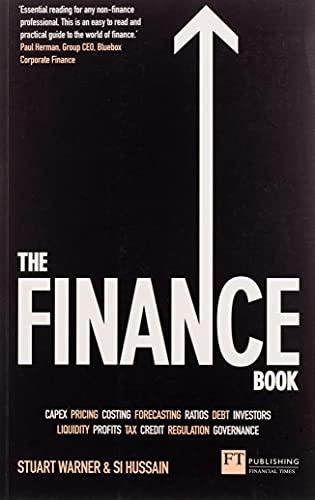
1. Which of the following is an appropriate definition of the efficient set of assets? a. the set of assets that lie below the minimum variance portfolio. b. the set of assets that have the highest expected return for each level of risk. c. the set of assets that have the most risk for any level of expected return. d. all of the above. 2. Which of the following statements is least accurate with respect to the factors that contribute to portfolio risk? a. The standard deviation of all individual securities must be examined. b. The weights of each of the securities in the portfolio must be computed. c. The correlation of among all pair-wise combination of securities must be examined. d. The expected return of all securities in the portfolio must be examined. 3. Which of the following statements is false? a. When comparing two securities, holding everything else constant, the absolute value of the covariance between their returns will increase as the absolute value of the correlation coefficient between the two securities increases. b. When comparing two securities, the covariance of their returns always must fall between -1 and +1. c. When comparing two securities, holding everything else constant, the covariance of their returns will increase as the standard deviation of one of the securities increases. d. When comparing two securities, the covariance and correlation coefficient of their returns must always have the same sign. 4. The Value at Risk approach: a. determines the highest expected value of terminal wealth in a portfolio. b. only looks at the likelihood of bad outcomes. c. specifies the maximum loss that could occur. d. is useless for selecting among financial assets. 5. An investor is willing to invest 50% of his $1 million wealth in risky assets but when his wealth decreases to $0.5 million this investor is willing to invest 60% of his wealth in risky assets. The behavior exhibited by this behavior is best described as: a. Increasing relative risk aversion. b. Decreasing relative risk aversion c. Increasing absolute risk aversion. d. Decreasing absolute risk aversion







